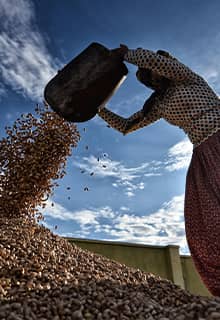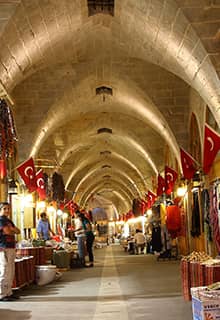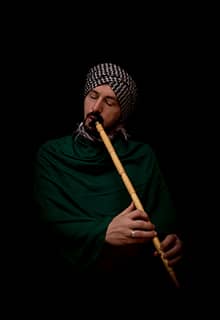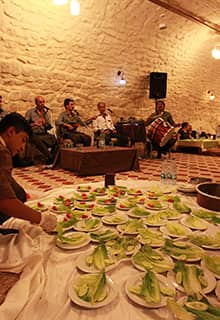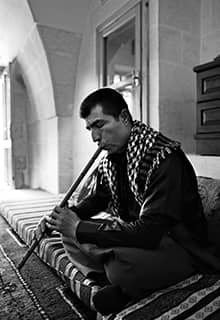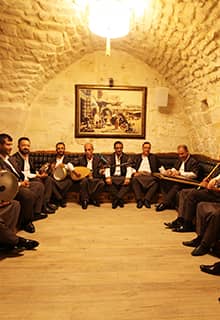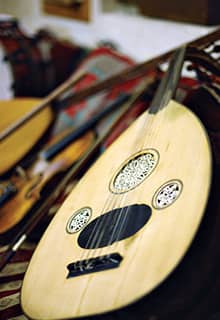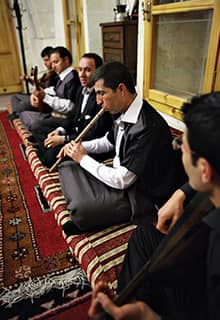

listen
South Eastern Türkiye
Sira Night, Şanlıurfa: A piece of Turkish culture
As soon as I step through the stone arches, I feel like I am riding on a musical wave. Deep voices hum rhythmically. String instruments strike the high and low notes. On both walls hang photographs. Illuminated by the chandelier, a mini model of the beehive houses of Harran graces the walkway. I walk into the heart of the restaurant and the music begins.
Setting the scene for the musical Sira Night at Cevahir Han or (Cevahir Inn) in Şanlıurfa in south-eastern Türkiye.
Şanlıurfa is an ancient Mesopotamian city, one of the oldest settlements of the world, continuously inhabited by the Elbans, Akkadians, Babylonians, Hitites, Arameans, Assyrians, Persians, Macedonians, Romans, Byzantines and the Ottomans. Conveniently located on the east-west gateway, Şanlıurfa was a trade hub. To cater to the rising number of merchants who frequented the route, several inns were set up. The exact antiquity of Cevahir Inn cannot be ascertained but the first mention was found in the 17th century record of the Ottoman explorer Evliya Celebi’s book of travel. The inn is also called Samsat Inn as it is located near the now non-existent Samsat gate in the northern part of the previous walled city of Şanlıurfa.
Inside the high-ceilinged stone hall, the melody of cümbüş, oud, tanbur, qanun, violin and drums reverberate. Modern lanterns hang from palm-tree shaped structures. Some guests sit cross-legged on the carpet, sipping ayran (a yoghourt-based drink like buttermilk) from the low-rise dining tables. Others are seated on the chairs. The sound of the fountain in the centre is ignored. Everyone here is concentrating on the music. On the stage, six Turkish men play local string instruments and sing folk songs— a touristic Sira Night or Sıra Gecesi is on progress.
Singers and musicians in a Sira Night in Şanlıurfa
Traditional Sira Night of the olden days
Şanlıurfa is famous for its thriving music culture, but in the past a traditional Sira night was never about the music. Once a week communities or groups of friends held an assembly in one of the group member’s house to discuss problems, brainstorm solutions, to chat and catch up. Elders passed on the traditions to the younger, taught them manners and politeness. Subjects like literature, poetry, history and philosophy were discussed. Exchange of ideas took place. The night would end with ciğköfte—a kind of spicy lamb kebap. Members took turns in hosting the meetings, the Turkish word Sıra Gecesi means nights in which everyone took a turn to host.
Not surprisingly, the music was important in the Sira nights but the nights were not solely focused on it. The skilled, wise, citizens trained the younger ones in vocal modulations and using the string instruments — baglama, oud, qanun, tanbur, çümbüş, and violin. There are several music museums in Şanlıurfa like the one dedicated to Ibrahim Tatlises, another to Muslum Gürses—local singers who attained nationwide popularity. The practice of Sıra Gecesi is thought to have influenced and honed their skills greatly.

